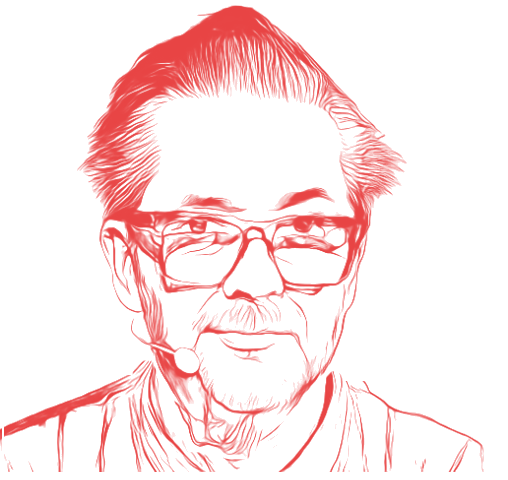It’s the end of the brand as we know it


Synopsis
Hospitality Strategist Matthias Huettebraeuker discusses the convergence of brands in the lifestyle segments and how shared ideals lead to lost appeals. He propagates a return to the „personality brand“ as a radically human approach to hospitality, citing places like La Granja or Berlins Michelberger as examples of commitment and connection. He then moves on to dissect another concept, the „hybrid brand“, laying out where it currently underperforms, which brands are getting it right, and why it’s a growth vehicle for big players and newcomers alike. The author suggests a more network-oriented, neighborhood approach instead of overloading single assets, a focus on the job to be done, and explains how this could revive the idea of subscription and help in building communities around a brand.
Let’s talk about ChatGPT.
Just kidding, I won’t, I just thought it would make for excellent clickbait.
Yet, I listened to AI veteran Gary Marcus recently saying that Large Language Models are little more than “autocomplete on a loop, mimicking styles, but there’s no real content, no meaning, no truth.”.
Which reminded me a lot of hotels, lifestyle hotels in particular.
Autocomplete on a loop.
Lifestyle hotels, that set out to bring back individuality, authenticity, a sense of place to the world of hospitality, have converged towards a common, ubiquitous code of retinal cues. The optical illusion of a progressive zeitgeist has siphoned away the passion of connecting to the customer or the moment or both. It’s not a style, it’s the pose of a success story, naked ambition at its own reward. The movement has become what it was initially combating: the triumph of the tried and tested.
Tried, though, is just an anagram of tired.
Aren’t we tired?
There are two ways out, different takes at creating a brand (product, business model), the “personality brand” and the “hybrid brand”, and while they couldn’t be more different in their scale, their approach, their experience, they are actually two sides of the same coin, they are both about the need for something “realer”, a need for purpose and connection.
Personality is not to be confused with personas, the latter, advocated by many (including this one here) as part of the solution actually is part of the problem. Personas are a reduction and people tend to be reductive (it’s a survival strategy after all) but these things can’t be reduced. Everyone looking at the same persona leads to a convergence of solutions, a convergence of stories, it’s a déformation professionelle of marketing people to think they can tell the same story in a unique way.
Personality is when someone does what he does, the story is up to us. Personality drives real relations, check out places like La Granja, Ett Hem or the Michelberger in Berlin and you see what I mean: a commitment to a place, personal ownership, and presence.
Don’t try to impress everyone, dare to express yourself. It’s not a new idea, it’s essentially what Design Hotels propagated with “Made by Originals”, and what Accor now tries to capture with yet another brand, “Handwritten”. No comment on the latter but picture me rolling my eyes.
The good news for Accor (and their peers from Bethesda, Denham or McLean) is they don’t have to follow that path, there’s another one.
Which leads us to “hybrid”.
Remember? It was the hot word of every conference for the better part of 2022, it had everybody excited until it was replaced by “pent-up demand”, which we liked even better because now we didn’t have to change anything.
Of course pent-up demand won’t save us, it’s just the warm hug we all needed after gruesome times but thinking we’re good for good would be merely a symptom of our sometimes pathological obsession with silver linings.
Where was I?
Hybrid. Is it just the latest meme stock of hospitality, a pandemic bubble like Peloton or are we on to something?
The most common definition is “one unified space where you can stay, work, eat, drink and socialize”. Which is pretty much what hotels have offered for a long time, so is it just another case of “give the world a new term and they think they have a new fact”?
Some add long-stay to the equation, which of course makes sense, cause now we’re making our business model more resilient. We‘re expecting greater returns through increased asset utilization, more bucks on the square meter.
That last thought is probably why many try to stack all those layers in the lobby. Work! Eat! Play! they shout. Someone in the front shouts Membership! But we’ll get to that later.
Is that what a hybrid hotel should be? For me it sounds more like a Turducken (google it, it’s Cajun).
It also reminds one of a department store, all under one roof, and Hans Meyer of Zoku said something that’s very true: suddenly you’re not only competing with the hotel down the street but also with the office down the street, the condos down the street.
You have to do it well, Meyer says, or don’t do it at all.
Now. How to do it well?
First of all, don’t look at hybrid as a defense play, the road to resilience, but as a growth vehicle. Hybrid is not about finding something else for unused spaces, it is about taking the platform approach to hospitality.
If you’re one of the big boys, it’s the best shot at growth that you have, you can only grow so much by keys. Just like Amazon is going into health - because how many more books can you sell, how many more video subscriptions - hospitality giants like Marriott or Accor need to take the idea of serviced real estate to a more multi-faceted base, add some legs to the stool.
Then, commit to the offering, create dedicated spaces and experiences for each use case, putting a sign that says coworking on that table in the lobby doesn’t do the trick, that’s just innovation by proclamation. The folk at Hoxton, pioneers of dashing creators working in dimly lit lobbies saw that early and created “working from”. Charlie McGregor saw it too and evolved the Student Hotel into what’s practically a vertical fifteen-minute-city. And consequently stopped calling it hotel.
Once you’ve done that you can move further and think out of your box, think beyond your four walls. “The space of the future is not a single space, it is a network of locations, connected by a layer of services”, says Dror Poleg.
It takes a village to raise a child, they say, it takes a neighborhood to serve our daily needs as grown-ups.
There’s a lot to be gained – remember: growth vehicle, not defense play – but the winner will be who’s working on new systems, someone who rethinks the game, someone who moves from space provider to solution provider, to the job to be done. Maybe this time that someone can be us.
Also, hybrid finally is a path towards subscription. Subscription hasn’t worked too well in hospitality, here’s why: it’s not an everyday product (other than for example Netflix), it’s a highly fragmented market (and see what fragmentation does even to Netflix) and subscriptions works best if there’s a ton of benefits for the buck (look at Amazon adding to Prime, first movies and music, and now health).
Once you transition from being a hotel to being the access point to serviced real estate or, even bigger, urban living, everything changes, you’re 365 day, multi-usecase and unified access rather than a discount scheme with made-up freemiums. No offense intended, citizenM.
And now (one more carrot for the road) you’re serving a community. Which, by the way, is much easier than building one and it’s a real community, a function of proximity, shared struggles and regular encounters.
Sounds good?
In the end it’s about being radical. Radically you or radically new. This is the time for revolutions, for revelations, not for reproductions.
It’s the end of the brand as we know it. And that feels fine.